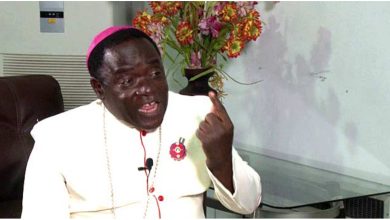Northern lawyers denounce illegal attempt to remove CCT chairman

After a recent fact-check by PRNigeria that revealed how Nigerian Senate flouted the Constitution in an attempt to remove the Chairman of the Code of Conduct Tribunal, CCT, Danladi Umar, a group of northern lawyers have also described the action of the legislators as unconstitutional and legally untenable.
The lawyers also called on President Bola Tinubu and the executive arm to act within the confines of the law.
The lawyers who addressed a press conference at the secretariat of the Nigeria Union of Journalists in Bauchi said the constitution is very clear on the issue.
In a statement read on their behalf by the spokesperson of Lawyers for the Cause of Justice in Bauchi, Nasiru H. Bala, the legal practitioners denounced the Senate’s recent decision to remove Justice Danladi Umar without any legal basis.
The lawyers stated that the Senate’s resolution, which was passed last week, violates the provisions of the 1999 Constitution of the Federal Republic of Nigeria.
According to the lawyers, the Constitution explicitly outlines the process for removing the chairman of the CCT.
This process requires presidential action and concurrence by two-thirds of the Senate and the House of Representatives.
The Northern lawyers highlighted critical sections of the Constitution to support its position.
“The Senate’s reliance on Section 157(1) is misplaced,” Mr Bala asserted, emphasizing that the CCT is not included in the offices covered under this section.
He explained that the principle of legal interpretation, expressio unius est exclusio alterius—the express mention of one thing excludes others—further invalidates the Senate’s decision.
The Northern legal practitioners expressed disappointment at the federal government’s handling of the issue, noting that the process for removing the CCT Chairman has been contentious since it first arose in July.
The group accused the Senate of acting unilaterally and without regard for the Constitution, rendering its decision “void ab initio”.
The group, therefore, aligned itself with legal experts such as Professor Yemi Akinseye-George SAN, Wahab Shittu SAN and Yunus Abdulsalam, SAN, urging the federal government under Tinubu’s administration to strictly adhere to constitutional provisions.
The lawyers emphasized the need for the Attorney General of the Federation to ensure that government actions, particularly concerning judicial officers, respect the principles of separation of powers and uphold democratic governance.
They called on the entire National Assembly to reconsider their stance, urging the President and the executive branch to act within the confines of the law.
“The rule of law must be upheld at all times, particularly in cases involving judicial officers, whose roles are vital to democracy and governance,” Mr Bala stated.
The press conference ended with a strong call for adherence to constitutional processes to maintain the integrity of Nigeria’s democratic institutions.
Recently, The Nigerian Senate, led by Senator Godwill Akpabio, had attempted to invoke Section 157(1) of the 1999 Constitution to remove Mr Umar as CCT Chairman, citing allegations of corruption and misconduct.
However, a PRNigeria fact-check reveals the Senate misapplied the law, as Section 157 pertains to the Code of Conduct Bureau, CCB, and not the CCT.
The removal of a CCT Chairman is governed by Paragraph 17(3) of the Fifth Schedule, requiring approval by two-thirds of both the Senate and the House of Representatives.
Additionally, the Senate wrongly linked the appointment of Abdullahi Usman Bello, who was cleared to chair the CCB, not the CCT, revealing a lack of understanding of constitutional distinctions.
Allegations against Mr Umar had previously been dismissed by anti-corruption agencies, further undermining the Senate’s resolution.
Legal experts have criticized the move as unconstitutional, highlighting a troubling lack of legislative diligence and understanding.
This misstep raises concerns about governance and adherence to the rule of law.





